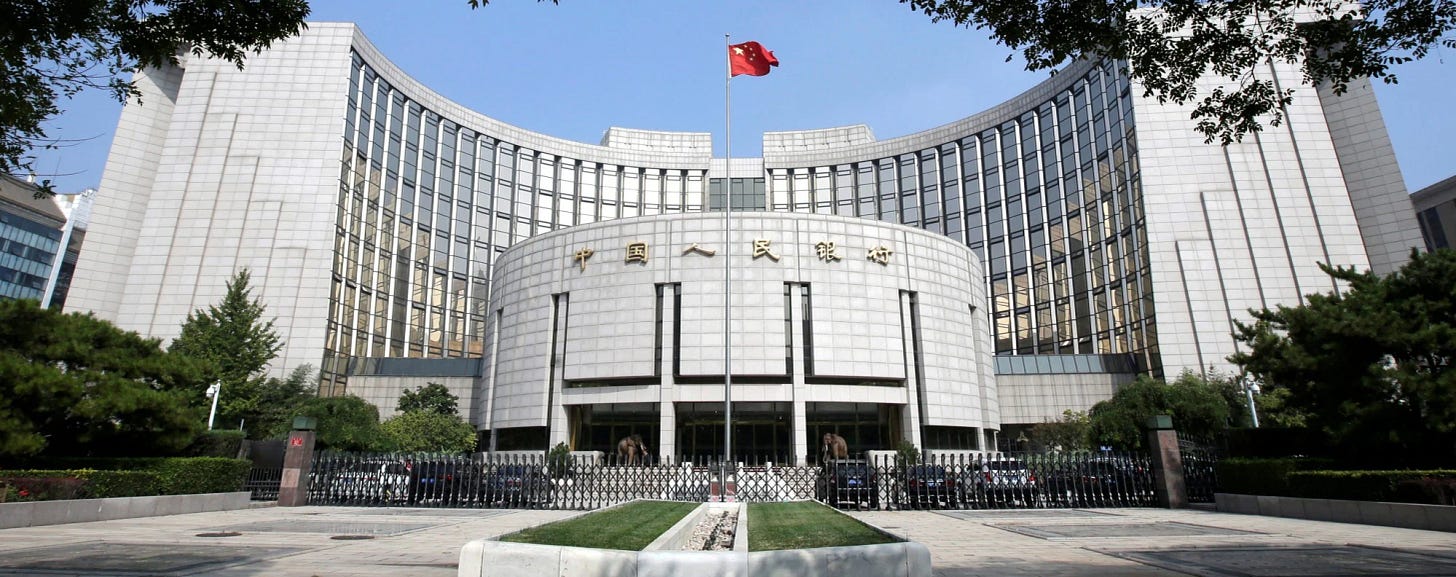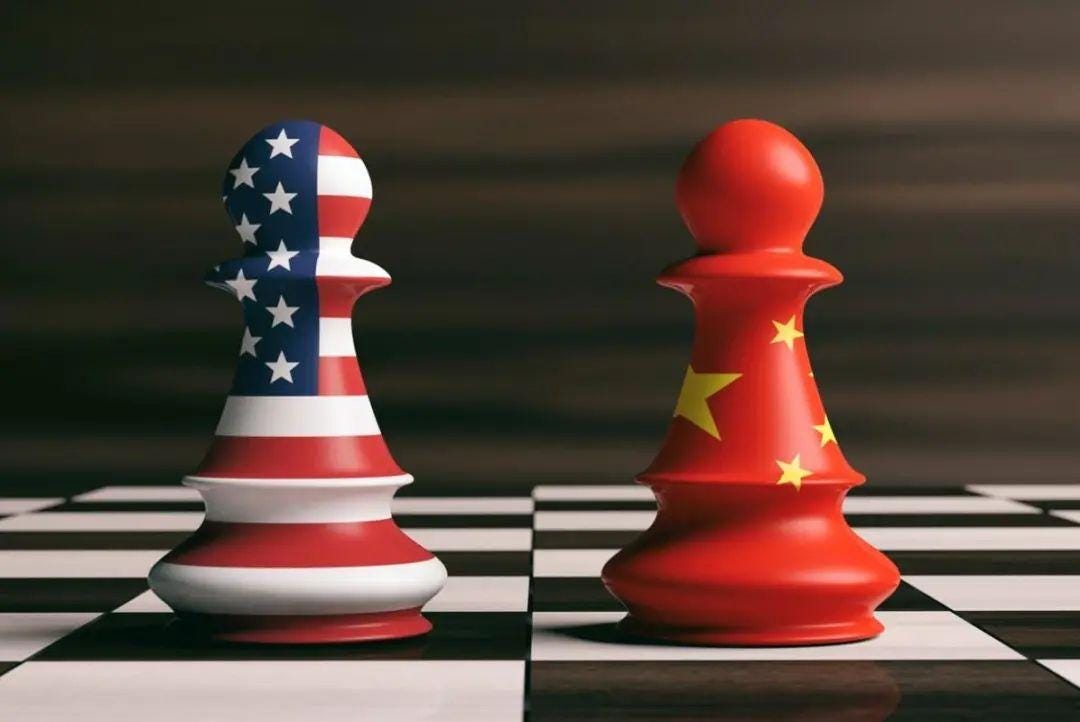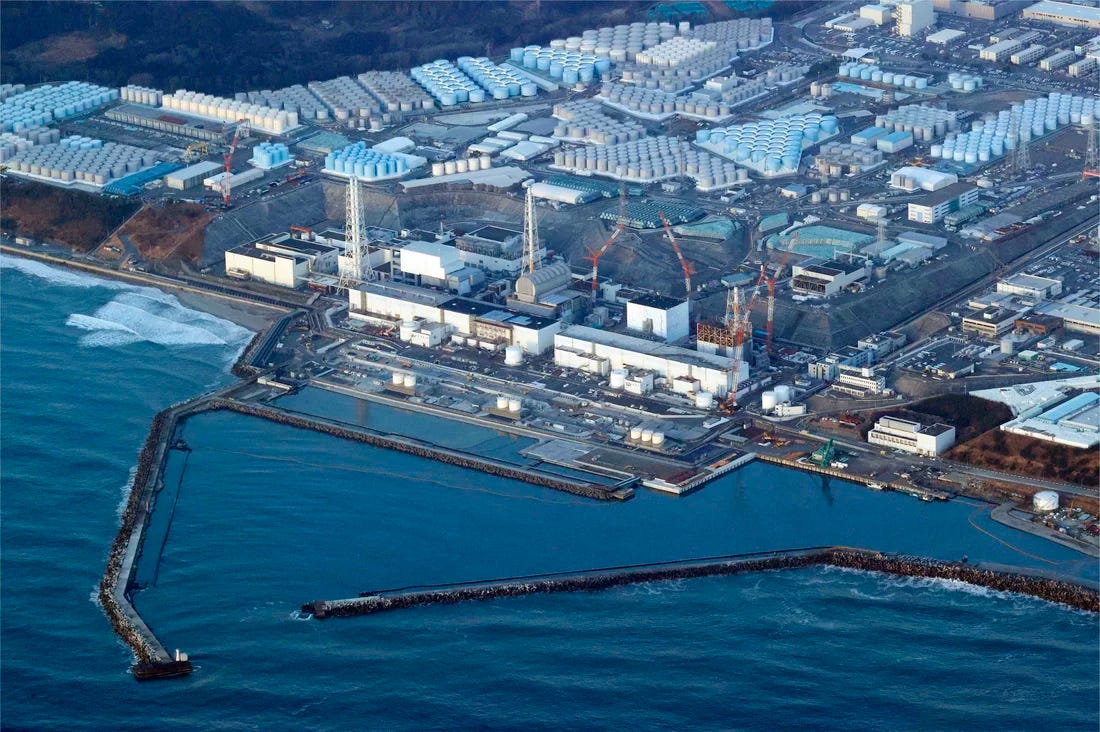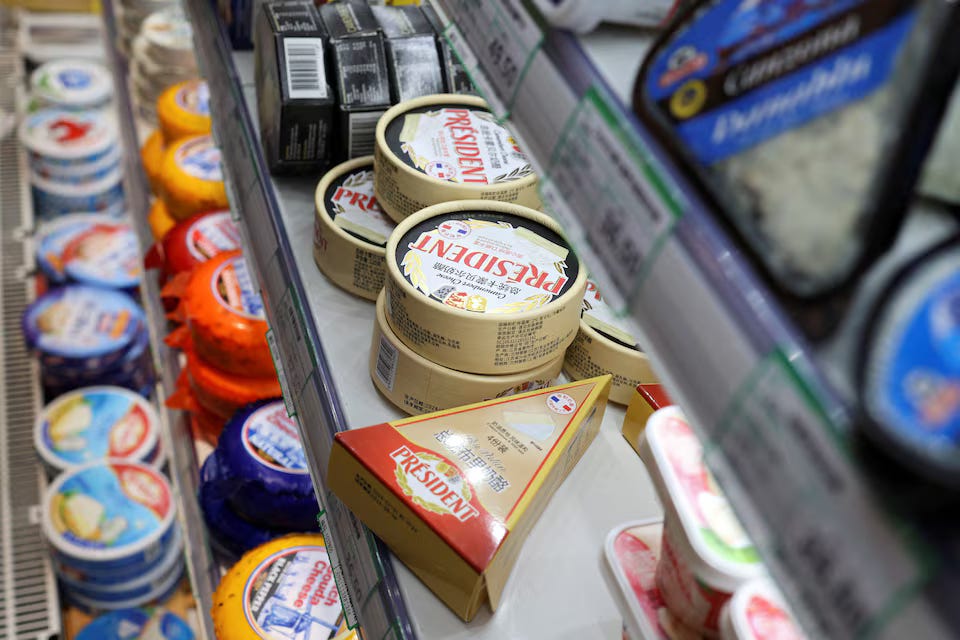Must-Read China Economic News (Sept. 19-25)
China's significant stimulus package to boost economic growth; China-U.S., China-Japan, China-EU bilateral relations...
Greetings and welcome to the latest edition of PekingEnsight! We're thrilled to have you join us once again as we navigate the ever-evolving landscape of the Chinese economy.
⭐Under the Spotlight
China's central bank, top securities regulator and financial regulator on Sept. 24 announced at a press conference a raft of monetary stimulus, property market support and capital market strengthening measures to boost the country's economic growth. The following are the highlights of the stimulus package which is the boldest in years according to media and experts:
MONETARY STIMULUS
China will cut the reserve requirement ratio (RRR) by 0.5 percentage points in the near future, providing about 1 trillion yuan, or about 142 billion USD in long-term liquidity to the financial market, said Pan Gongsheng, governor of the People's Bank of China.
Depending on the liquidity situation in the market, RRR may be further lowered by 0.25 to 0.5 percentage points within the year.
The central bank will also reduce the interest rate of seven-day reverse repurchases from 1.7 percent to 1.5 percent.
The reduction is aimed at guiding the loan prime rate and deposit rate to move downward and maintaining stability in the net interest margin of commercial banks.
"The central bank would keep monetary policy accommodative, strengthen monetary policy regulation, make monetary policy regulation more precise, and create a sound monetary and financial environment for stable economic growth and high-quality development," said Pan.
China targets economic growth of around 5 percent in 2024.
The country's economy maintained stable expansion in the first half of the year despite rising challenges from home and abroad.
Data from the National Bureau of Statistics (NBS) showed that China's GDP grew 5 percent year on year in the period to 61.68 trillion yuan. In the second quarter, China's GDP expanded 4.7 percent year on year.
MORTGAGE RATE CUTS
China will lower mortgage rates on existing home loans to a level similar to those of newly issued housing loans, according to the central bank.
The average reduction in mortgage rates for existing home loans is expected to be around 0.5 percentage points.
"The new policy, which is conducive to further reducing borrowers' mortgage interest expenses, is expected to benefit 50 million households, or a population of 150 million," said Pan.
This move is expected to reduce the total interest expenses for households by approximately 150 billion yuan per year on average, which will help boost consumption and investment, he added.
The minimum down payment ratio for both first and second homes will be unified, with the nationwide minimum down payment ratio for second homes to be reduced from 25 percent to 15 percent.
On May 17, China announced the establishment of a 300-billion-yuan re-lending facility that supports local state-owned enterprises to buy commercial homes for affordable housing.
Pan said the central bank will increase its funding proportion in the affordable housing re-lending policy from the original 60 percent to 100 percent.
"This adjustment will help accelerate the reduction of inventory in the commercial housing market," Pan said.
China's large and medium-sized cities saw month-on-month declines in both new and second-hand home prices in August, NBS data showed.
FINANCIAL MARKET SUPPORT
The central bank will create new monetary policy tools to support the stable development of the stock market.
It will establish a swap program for securities, funds and insurance companies to obtain liquidity from the central bank through asset collateralization. The program will significantly enhance companies' ability to acquire funds and increase their stock holdings.
A special re-lending facility to guide banks to provide loans to listed companies and their major shareholders for buybacks and increasing shareholdings will also be created.
Experts consider the release of the new batch of policies a positive signal of strengthening policy coordination and efforts to achieve the annual economic growth target.
"The central bank's policies, which exceed market expectations, will boost market confidence, stimulate the vitality of business entities, stabilize credit levels, and enhance the sustainability of financial support for the real economy," said Wen Bin, chief economist at China Minsheng Bank.
To better channel funds into the capital market, China will issue a guideline that seeks to improve the entry supporting system of various types of medium and long-term funds into the capital market, according to Wu Qing, head of the China Securities Regulatory Commission.
The commission will also release six measures to promote mergers and acquisitions, and work with various parties to facilitate the circulation of private equity and venture capital funds in the process of fundraising, investment, management and withdrawal, Wu said.
More efforts will be made to protect the legitimate rights and interests of small and medium-sized investors, and firm actions will be taken to crack down on illegal activities such as financial fraud and market manipulation.
Li Yunze, head of the National Financial Regulatory Administration, said China plans to increase the tier-1 capital of six major commercial banks.
The capital will be injected in an orderly manner, with coordinated advancement, phased implementation and tailored policies, said Li.
Tier-1 capital refers to the core capital held in a bank's reserves, including common stock and disclosed reserves.
China's major stock indices surged following the release of the stimulus package, with the Shanghai Composite Index and the Shenzhen Component Index both closing with an increase of more than 4 percent on Sept. 24.
⭐Bilateral Relations Attracting Attention:
China launches probe on U.S. company over suspected market discrimination
China's Ministry of Commerce said on Sept. 24 that it will probe into PVH Corp. of the United States under the unreliable entity list framework for suspected discriminatory measures and other practices violating market trading principles regarding Xinjiang-related products.
The U.S. company, which owns fashion brands like Tommy Hilfiger and Calvin Klein, is suspected of boycotting cotton products from China's Xinjiang Uygur Autonomous Region without any factual basis and terminating normal transactions with Chinese companies as well as other organizations or individuals, according to the ministry.
Such practices have "seriously undermined the legitimate rights and interests of relevant Chinese enterprises, and jeopardized China's sovereignty, security and development interests," said a spokesperson with the ministry.
The investigation was initiated based on recent reports from relevant organizations, and PVH Corp. is expected to provide information to the office of the unreliable entity list mechanism within 30 days as of Sept. 24's announcement to explain if it had taken discriminatory measures against Xinjiang-related products in the past three years, said the ministry.
Organizations or individuals may report to the office and provide evidence regarding the company's violations of market principles, it said.
Appropriate measures will be taken based on the investigation results, according to the ministry.
China introduced the unreliable entity list system in September 2020 to protect its national interests and business environment, but it was not until February 2023 that the Chinese government first added foreign entities to the list.
The country has been exercising prudence when handling issues related to the unreliable entity list, which targets only a few foreign entities that disrupt market rules and violate Chinese laws, the ministry said.
The spokesperson reiterated the Chinese government's firm commitments to advancing high-standard opening up, upholding the multilateral trade system, and safeguarding the legitimate rights and interests of all market participants.
"Foreign entities that operate with integrity and abide by the law have no reason to be concerned," said the spokesperson.
China, Japan conduct consultations on ocean discharge of Fukushima nuclear-contaminated water
The competent departments of China and Japan have recently conducted multiple rounds of consultations on the discharge of nuclear-contaminated water from the Fukushima Daiichi Nuclear Power Station into the ocean.
The Japanese government unilaterally started the discharge of nuclear-contaminated water from the Fukushima Daiichi Nuclear Power Station into the ocean on August 24, 2023.
As one of the most important stakeholders, China is firmly opposed to this irresponsible move, and has urged Japan to seriously address concerns in and outside Japan, to earnestly fulfill its obligations, to give full cooperation in the establishment of an independent and effective long-term international monitoring arrangement in which stakeholders can participate substantively, and to accept independent sampling and monitoring by China.
The competent departments of China and Japan have reached the following agreement after the consultations:
Japan explicitly commits to fulfilling its obligations under international law, doing its utmost to avoid leaving negative impact on human health and the environment, and conducting continuous evaluations of the impact on the marine environment and marine ecosystems.
Given the concerns of China and all other stakeholders, Japan welcomes the establishment of a long-term international monitoring arrangement within the International Atomic Energy Agency framework covering key stages in the discharge of the nuclear-contaminated water, and will ensure that China and all other stakeholders can participate substantively in the arrangement and that these participating countries can carry out independent sampling and monitoring as well as inter-laboratory comparisons.
Both sides agree to continue to have constructive, science-based dialogue with a great sense of responsibility for the ecosystem, the environment, and human life and health, to properly address concerns over the discharge of the nuclear-contaminated water into the ocean.
China states that it has taken temporary emergency precautions against aquatic products of Japanese origin according to relevant Chinese laws and regulations and WTO rules. After China participates substantively in the long-term international monitoring within the IAEA framework and the independent sampling and other monitoring activities by participating countries are carried out, China will begin to adjust the relevant measures based on scientific evidence and gradually resume imports of Japanese aquatic products that meet the regulation requirements and standards.
But China said agreement on ocean discharge of Fukushima nuclear-contaminated water does not mean China will resume imports of Japanese aquatic products immediately.
China will follow WTO rules to handle EU's challenge of dairy products anti-subsidy probe
The Chinese Ministry of Commerce (MOC) on Sept. 23 said that it has received the consultation request that the European Union (EU) issued through the World Trade Organization (WTO) regarding China's anti-subsidy investigation into imports of EU dairy products.
In a statement, the MOC said China regrets that the EU has challenged the case through the WTO dispute settlement mechanism, but the country will handle the challenge in accordance with relevant WTO rules.
"As a member of the WTO, China has always used trade remedy measures with caution and restraint to safeguard fair and free trade," the statement said.
It noted that China launched its anti-subsidy investigation into EU dairy products in accordance with Chinese laws and in response to an application from the domestic industry, and that the Chinese government has a responsibility to safeguard the legitimate rights and interests of its domestic industries.
Last month, China launched the anti-subsidy investigation into certain dairy products imported from the EU. It will look into products such as fresh cheese, curd and blue cheese. It will also examine any damage brought to related Chinese industries from Jan. 1, 2020, to March 31, 2024, according to the commerce ministry.










